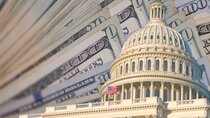
Study
1,001 results found


Illegal Immigrant Incarceration Rates, 2010–2023

Cutting School Food Subsidies

The Budgetary Cost of the Inflation Reduction Act’s Energy Subsidies

Terrorism and Immigration

Corporate Welfare in the Federal Budget

Congress Can’t Outgrow or Inflate Away the Social Security Financing Problem

Subsidizing Transport

A Comprehensive Evaluation of Policy Rate Feedback Rules

A Fiscal Agenda for the 119th Congress

Digital Trade Brings the World to Your Fingertips

The Social Security Trust Fund Myth

Why US Immigration Officials Should Allow “Digital Nomad” Admissions

Is There Life After NATO?

A Bigger Government Means Giving Up Almost Half Your Paycheck